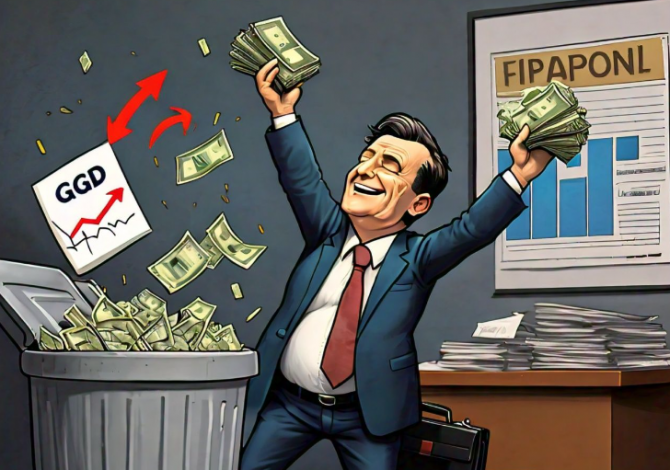
A stronger than expected read on US inflation sent markets into a dive this week, with tech stocks coping most of the pain.
But why is that? And what does it mean for investors?
It’s all to do with the ‘cost’ of money — that is, interest rates. When the price of goods & services rises beyond what is considered reasonable, central banks increase interest rates to try and keep the economy from overheating. Indeed lenders in general will demand a higher rate of interest to help offset the effects of inflation; there’s no sense in accepting a 2% return, for example, when inflation is above that. You’re just losing out in real (i.e. inflation adjusted)terms.
And the higher interest rates are, the more of a return you should demand for ‘risk assets’ to make it worthwhile. An 8% return from shares is quite appealing when you can only get 2% in a term deposit. But if you can get, say, 7% virtually risk free by buying something like a Government bond, why would you take a whole bunch of extra risk just for a few extra percentage points of return?
That’s a big part of the reason why share markets have done so well in recent years. With interest rates at almost zero, and with most expecting a “lower for longer” outlook on borrowing costs, investors have been willing to accept lower returns from equities. Which means they could reasonably justify paying higher prices for stocks.
But it cuts both ways.
The reason tech stocks (or more generally growth stocks) have fared worse over the prospect of higher rates is that most of their value is predicated on cash flows that are expected well into the future. Indeed, many of these stocks are losing money today — some quite a lot — but investors have been willing to pay up because they expect really high levels of cash flows once these businesses reach scale.
And that’s perfectly reasonable. Just look at Amazon (NASDAQ:AMZN), a company that bled huge amounts of cash for years as it established itself and traded on (seemingly) insane multiples. Once it tipped into profitability though, and flexed its awesome scale advantages, the cash started to gush in a major way and more than justified its earlier market price.
Nevertheless, even if you expect big things in the future, the further out those cash flows are the less they are worth in today’s dollars. Moreover, the higher interest rates are, the more aggressively you need to discount them back.
So what do you do?
Well, it depends on your expectations. If you’ve been basing your purchases on the belief that interest rates would stay super low for a long time, you need to ask yourself whether that view is still reasonable. If your outlook hasn’t changed, the market is giving you an opportunity to buy shares at a much better value.
If, on the other hand, you no longer have confidence in that view, the value you once perceived may no longer be apparent — despite the pull back in market prices.
The reality is none of us can know for sure. Even the best economists in the world have a terrible track-record of forecasting such things. That’s why it’s always smart to layer in a margin of safety with your assumptions. And it’s why the price of many former market darlings were always (perhaps with the benefit of hindsight) hard to justify; they only made sense if absolutely everything went their way.
They were ‘priced for perfection’, as they say.
The important thing is to avoid any knee-jerk reactions. Furthermore, it’s important to avoid anchoring on past prices. Step away from the market, and forget about what prices are doing. Don’t think about what you paid for your shares, or whether you’re in profit or loss. In terms of making a decision today, none of that is important.
It’s emotionally tough to admit you made a mistake, if indeed that’s what an objective consideration reveals. But it’s far better to admit to a mistake than to compound it through stubbornness.
The good news is that when markets are skittish, and fear starts to dominate, there can be wonderful opportunities to be had. But you’ll only be able to take advantage of them if you avoid the panic and remain disciplined.
Stay calm. Do the work. Allow for uncertainty. And wait for the right opportunity.
Good luck!
Strawman is Australia’s premier online investment club. Join for free to access independent & actionable recommendations from proven private investors.
Disclaimer– The author may hold positions in the stocks mentioned in this publication, at the time of writing. The information contained in the publication and the links shared are general in nature and does not take into account your personal situation. You should consider whether the information is appropriate to your needs, and where appropriate, seek professional advice from a financial adviser. For errors that warrant correction please contact the editor at [email protected].
© 2021 Strawman Pty Ltd. All rights reserved.
| Privacy Policy | Terms of Service | Financial Services Guide |
ACN: 610 908 211







